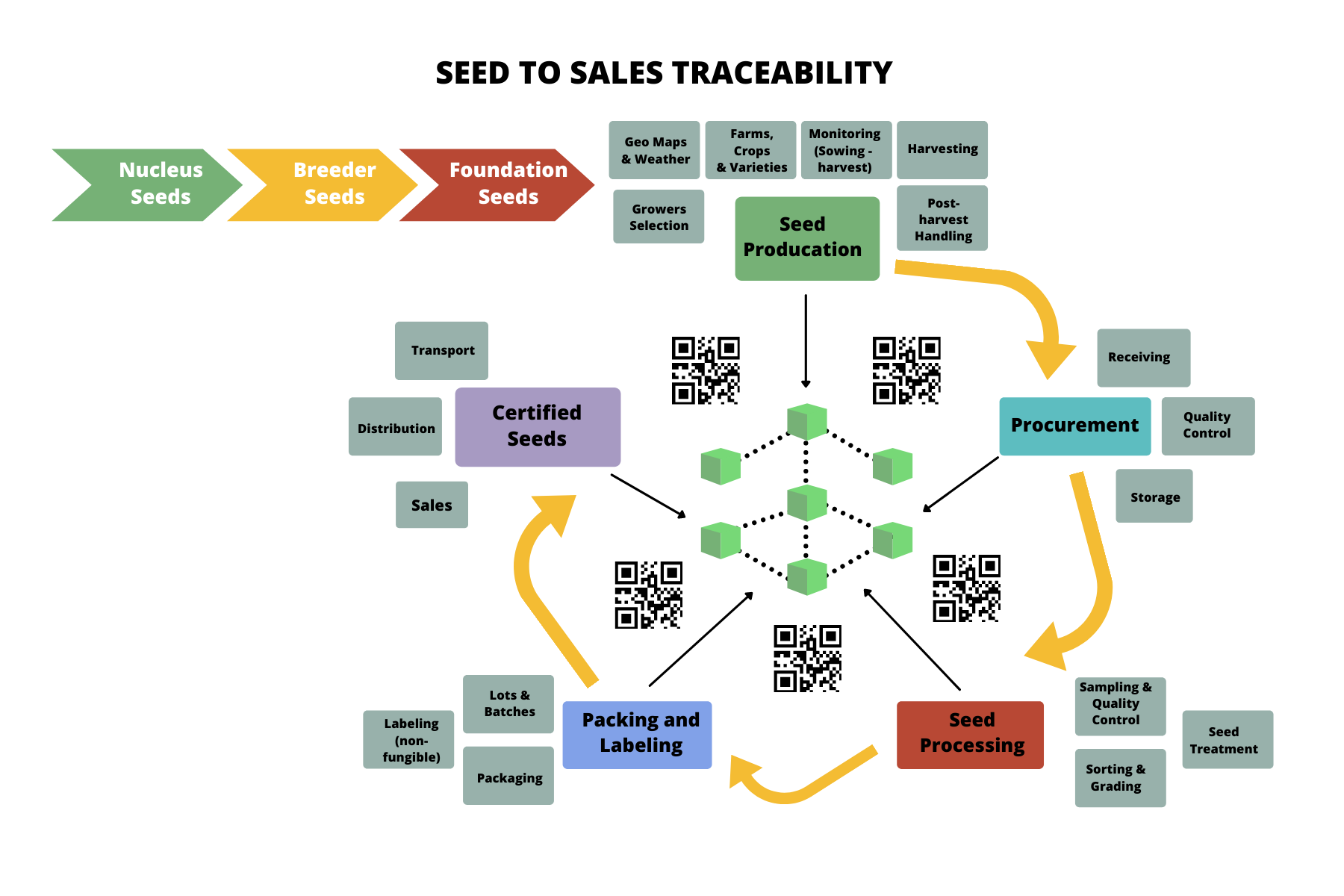Contact: +91 99725 24322 |
Menu
Menu
Quick summary: India’s extensive agricultural network makes it one of the largest seed markets in the world, with an estimated value of $ 3.6 billion in 2017 and a 17% annual growth rate during 2010-2017, according to Research and Markets. The main challenges in the Indian seed market are the unorganized seed supply chains that compromise the seed health during its transportation and the market for fake seeds. By leveraging blockchain for agriculture management, traceability solutions focus on reinforcing market confidence in seed quality.

India has the world´s second-largest arable area, with 46 soil types in 15 agro-climatic zones. Its extensive agricultural network makes it one of the largest seed markets in the world, with an estimated value of $ 3.6 Bn in 2017 and a 17% annual growth rate during 2010-2017, according to Research and Markets.
However, quality assurance is facing new challenges with the increase of fake seeds in the market. Read on to know how TraceX uses blockchain to trace seeds from soil to fork to back up the brand’s claims and meet consumers’ requirements for certified seeds.

In addition to the effects and impact of agro-climatic change affecting the global seed market, two of the main challenges in the Indian seed market are the inadequate seed supply chains that compromise the seed health during its transportation or storage and the market for fake seeds.
Seed fraud is the practice where plant seeds marketed as high-performance have been tampered with or been replaced with inferior products. The illegal seeds are commonly sold under the name of prominent companies, putting at risk the productivity of crops and the livelihoods of farmers who lack an effective mechanism to identify them as such.
Along with the sale of fraudulent seeds comes the illegal planting of transgenic crops unapproved by regulatory authorities, such as in the cases in India of the illicit cultivation of herbicide-tolerant (HT) Bt cotton and soybean, to name a few, that put the health of farmers, the consumer and the environment at risk by stimulating the use of toxic herbicides such as glyphosate to save on the manual labor of getting rid of weeds from the fields.

The answer lies in the supply chain and the seed management system. Startups such as TraceX technologies have translated the features of blockchain technology: decentralized and distributed ledger, fully digitized verification system, and tamper-proof data management to the seed supply chain.
For the agents involved in the seed market, this means being able to trust that the life cycle of the seeds will be traceable from the nucleus seeds, through the crops, and into the hands of the end customer.
This not only prevents manipulation attempts and better controls the quality of each seed but adds value to the end product by giving consumers a chance to know what route their food has taken to reach their tables.
Validate seed purity with real-time TraceX Blockchain-powered Traceability
By leveraging blockchain for agriculture management, the TraceX traceability solution focuses on reinforcing market confidence in seed quality while offering a competitive advantage to brands seeking to back up their quality and reliability claims on their products.

According to the Mitsui & Co. Report (2019), due to the diversification of consumer needs, a fundamental shift has been observed in the seed industry.
Instead of the traditional product-outside approach, whereby development, production, and sales are conducted from the perspective of suppliers (growers and manufacturers), the focus is shifting to a market-in business strategy based on consumer needs, which are leaning heavily towards a more conscious consumption targeting food safety and a low impact in the environment.
For this consumer-oriented style of seed business, the application of blockchain in the agricultural sector plays a vital role by solving multilevel seed management issues and giving the consumers precisely what they are asking for, transparency and accountability, which is why multinational companies such as Unilever, Nestlé, and Walmart already have blockchain-based solutions for their food supply chains.
Quality assurance of seeds and maintaining a transparent and robust seed system for any modern seed market will be essential for a country’s food security and come to the forefront as the key to boosting and accelerating agricultural growth.
